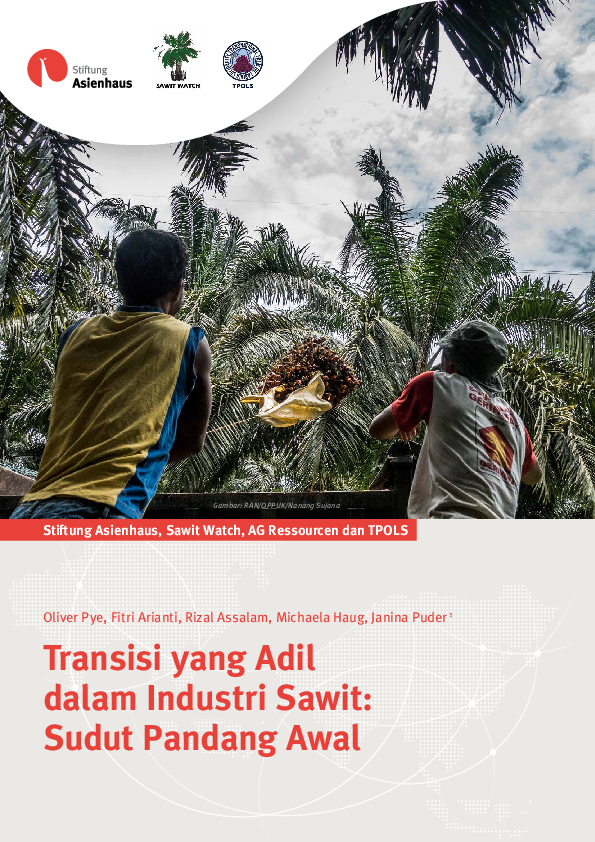The palm oil industry is a driver of climate change and species extinction. The constant expansion of new monocultures is destroying rain forests, while the fires used to clear the forests are an additional source of emissions.
The industry is unsustainable on a social level, as well. Millions of precarious workers labour on the plantations, earning starvation wages, their organisations supressed. The environmental label 'Sustainable Palm Oil' (RSPO), which is pushed by corporations, does not solve these issues.
This is why an alliance of unions, women's and environmental organisations from Indonesia tries to develop strategies for a transformation of the palm oil industry, that are socially and ecologically just.
'Mosaic Landscapes', incorporating small scale palm oil production with contiguous rain forest areas and agroforestry systems, necessitating well-paid, ecological skilled labour could form part of a solution.
This position paper is a cooperation between Stiftung Asienhaus (AG Ressourcen), Sawit Watch, TPOLS and Bread for All. The authors Oliver Pye, Fitri Arianti, Rizal Assalam, Michaela Haug and Janina Puder connect the differing perspectives and demonstrate a potential way to a transition, that is socially, ecologically and humanely just.











